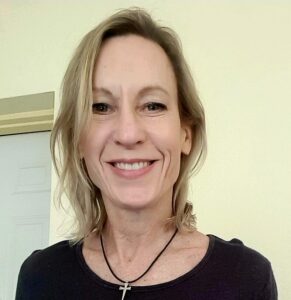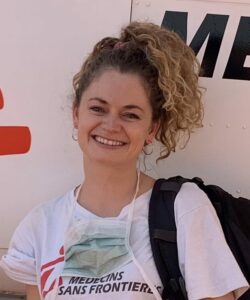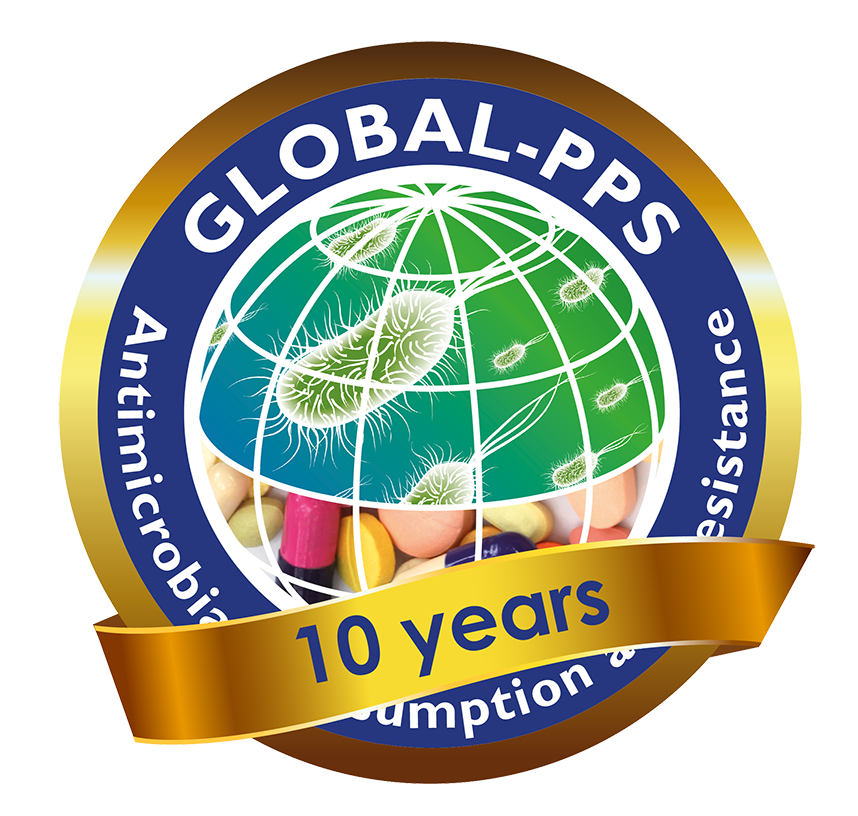Global-PPS in a MSF-hospital
Read our unique testimonial with Doctors Without Borders (MSF) about their involvement in Global-PPS.
 What is your role within the Global-PPS project?
What is your role within the Global-PPS project?
Marije Baan: I work at MSF as a medical doctor. From June until December 2021 I was in Bentiu, South Sudan, where I was involved in the Global-PPS project.
Kate Clezy: I joined MSF in the beginning of 2019. I was interested on how we can do point prevalence surveys in low-income countries; the Global-PPS project seemed very useful from this perspective.
Can you explain what the collaboration with the Global-PPS project entails? And what the benefits are?
Kate Clezy: The Global-PPS is a tool that helps us to understand how antibiotics are used in our hospital setting. To put it simply, it is a way of collecting information about who is on antibiotics, and why. It gives us an overview of antibiotic prescribing practices and how well these are documented in the medical chart. With a good number of data points, it is possible to draw conclusions, feed that information back to the prescribers, and look for areas where practices can be improved. Our ultimate goal is to make sure that the doctors are well informed and are able to use antibiotics optimally when treating patients. The results of the Global-PPS can be very helpful when planning improvements in prescribing.
Marije Baan: I found it very important to explain why we are collecting data. Motivating people to participate in the PPS is essential. Some of the prescribers had come to me raising concerns about how antibiotics were used. The data collected through the G-PPS was very important in supporting them with evidence.
What is the ultimate goal of using the Global-PPS for MSF? What do you really hope to achieve?
Marije Baan and Kate Clezy: Our efforts focus on the correct, responsible use of antibiotics. We try to encourage prescribers to look at their antibiotic prescribing processes. It is all about awareness. Different teams of people (medical, pharmaceutical and nursing professionals) need to be aware about these processes. It builds an understanding of what happens in their facility.
Did Global-PPS help to enhance appropriate antimicrobial prescribing in your setting, so far? What did you find helpful?
Kate Clezy: When we conducted the first survey in Bentiu, only few diagnostic indicators were documented. Thanks to Global-PPS, documentation really improved over the years. This is important because if you improve documentation of diagnostic indicators, then you most likely improve handover.
Marije Baan: During our work in South Sudan, I found the helpdesk of Global-PPS very helpful and always available. They replied quickly to any questions I had.
About Kate Clezy
 Dr. Kate Clezy is an infectious diseases specialist who has been working as the Antimicrobial Resistance and Infectious Diseases Advisor for MSF Holland since mid-2019. Her work within MSF includes identifying areas for improvement and this includes participating in and supporting audits, including point prevalence surveys. She has a long standing interest in patient safety and quality, particularly in the areas of antimicrobial stewardship (AMS) and infection prevention and control (IPC). She was responsible for leading and implementing an antimicrobial stewardship program in a medium sized tertiary referral hospital in Sydney, Australia as well as participating in New South Wales Ministry of Health Strategic Committees for both AMS and IPC and strongly supports the collection of data that can be used for action.
Dr. Kate Clezy is an infectious diseases specialist who has been working as the Antimicrobial Resistance and Infectious Diseases Advisor for MSF Holland since mid-2019. Her work within MSF includes identifying areas for improvement and this includes participating in and supporting audits, including point prevalence surveys. She has a long standing interest in patient safety and quality, particularly in the areas of antimicrobial stewardship (AMS) and infection prevention and control (IPC). She was responsible for leading and implementing an antimicrobial stewardship program in a medium sized tertiary referral hospital in Sydney, Australia as well as participating in New South Wales Ministry of Health Strategic Committees for both AMS and IPC and strongly supports the collection of data that can be used for action.
About Marije Baan
 Marije Baan is a medical doctor from the Netherlands. She holds a Master’s degree in Global Health and completed a postgraduate clinical training in Global Health and Tropical Medicine. In 2021 she started working with MSF, her first mission being in Bentiu, South Sudan. When not on a mission, she is involved with a Dutch non-governmental organization (NGO) focusing on sustainable healthcare and planetary health through advocacy and education.
Marije Baan is a medical doctor from the Netherlands. She holds a Master’s degree in Global Health and completed a postgraduate clinical training in Global Health and Tropical Medicine. In 2021 she started working with MSF, her first mission being in Bentiu, South Sudan. When not on a mission, she is involved with a Dutch non-governmental organization (NGO) focusing on sustainable healthcare and planetary health through advocacy and education.
